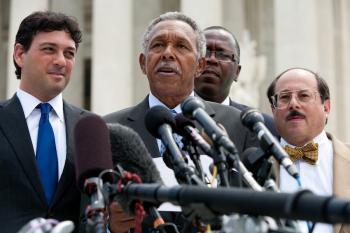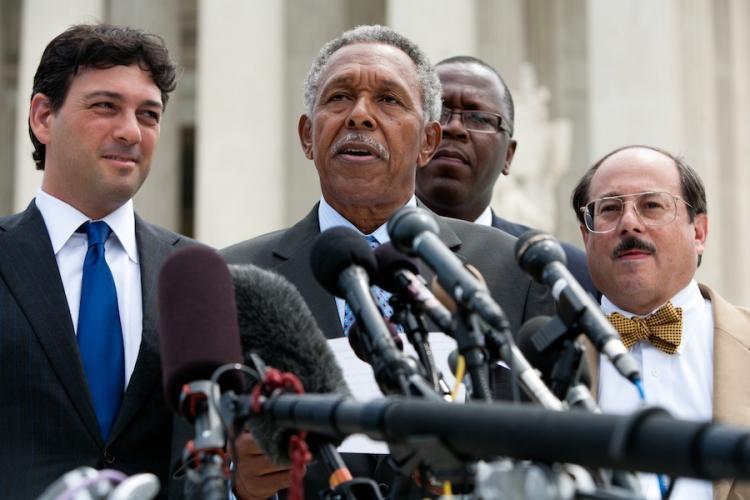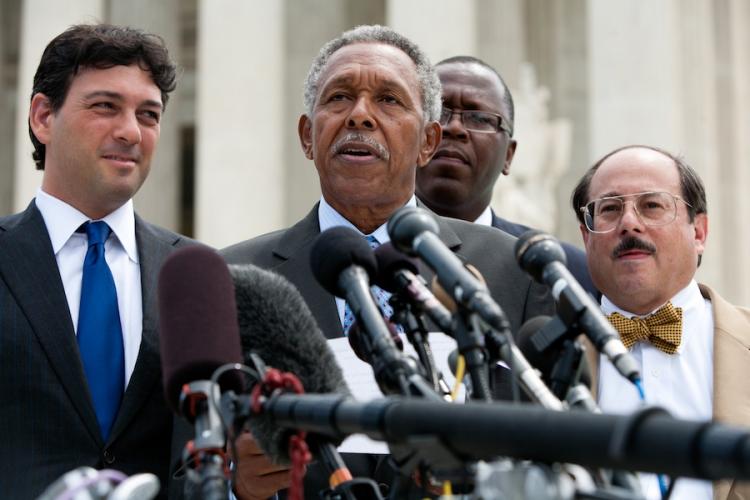Supreme Court Ends Chicago Handgun Ban; Applies Second Amendment to All States
The Supreme Court announced its decision on the application of the Second Amendment in a landmark case.

Otis McDonald, lead plaintiff, speaks at a news conference with his legal team in front of the Supreme Court building after the announcement of a ruling in their case seeking to overturn Chicago's ban on handguns on June 28, in Washington, DC. Brendan Hoffman/Getty Images
|Updated:
Annie Wu joined the full-time staff at the Epoch Times in July 2014. That year, she won a first-place award from the New York Press Association for best spot news coverage. She is a graduate of Barnard College and the Columbia University Graduate School of Journalism.
Author’s Selected Articles






